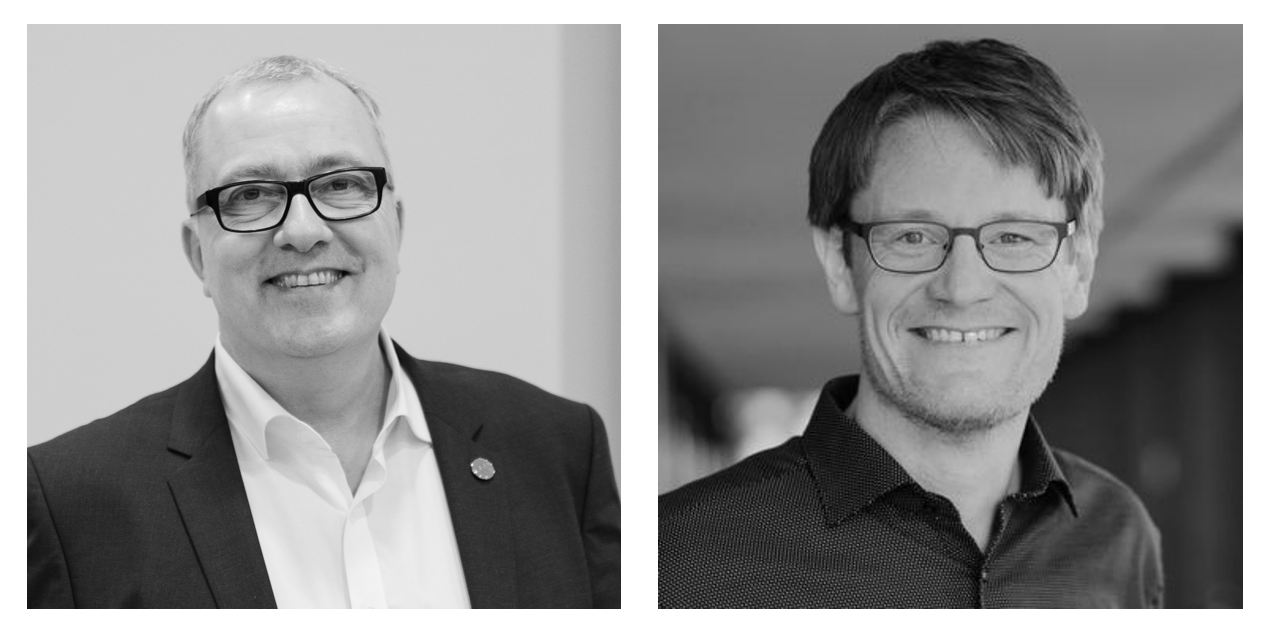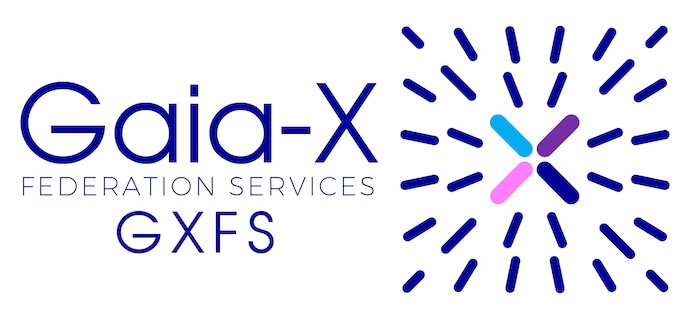
Whether it’s the Internet, social networks or cloud platforms: Our digital infrastructure runs on open-source software. Europe’s new data ecosystem Gaia-X is also being developed using open-source technology. But in our conversations, we repeatedly encounter a wait-and-see attitude towards participating in open-source projects: What’s the benefit for us? Why not wait until ready-made solutions are available? In this post, we’ll outline for you the 7 key reasons why financial support isn’t the primary reason to get involved.
1. Have a say in your own industry’s digital transformation
How will you share data with partners in your value chain in the future? Who in your industry will determine the standards and procedures for this? This time, the answers won’t come from a single software manufacturer or platform operator. Rather, they will come from your competitors! That is, if you leave the field to them. Because Europe’s infrastructure for the data age is being created as a joint project.
Hundreds of European companies are already active: at the Gaia-X AISBL, which is the central association of the initiative in Brussels; in the national Gaia-X hubs; or in the developer community. The financed projects aim to present their first prototypes for Gaia-X industry solutions and data spaces at the end of 2024. Recently, the Gaia-X Federation Services (GXFS-DE) were handed over to the care of the Eclipse Foundation. As a result, Europe’s largest open-source foundation is moderating the work on the most important software framework for Gaia-X. Under the project name XFSC, from now on anyone can contribute to the further development of the federation services.
Whether you’re a large corporation, an SME or an individual expert, the course for data-based business models in your industry is now being set. Any stragglers will have to face the fact that, in holding back, their costs will end up being higher than among those who are taking action.
2. Become independent of individual suppliers
Europe relies on foreign technologies such as search engines, social networks, semiconductor chips, edge devices and, last but not least, cloud infrastructures. This dependency allows providers from outside Europe to alter the ground rules within the EU to their advantage. For instance, the current market situation means that customers of major public clouds can often only alter their infrastructure platform at a high cost, with the catchword being a lack of portability. Gaia-X was initiated to ensure that our continent does not once again lose its competitive edge during the next stage of digitalisation.
However, it’s not only about speed, but it’s also about the following question: Who owns the marketing rights to Europe’s future data infrastructure? The answer: The foundational technology for European data spaces is being developed via an open-source licence. Control over key technologies should no longer be in the hands of a few companies, but available to all.
Companies that participate directly in the open-source projects for Gaia-X are reclaiming sovereignty over their strategic infrastructure. They can adapt the technology to their needs and do not have to rely on the decisions or availability of a single provider who may charge high licence fees or discontinue support at some point in time.
3. Building strategic knowledge in a timely manner
In the data economy, companies must rapidly respond to new market demands with digital solutions and business models. However, the required competencies are lacking in the German economy. Only a minority of companies are currently capable of developing business applications directly for cloud environments – that is, cloud native. Their share has been growing for years, but only slowly. Likewise, only a minority of companies engage in data exchange data with other companies. However, cloud native concepts and data-based cooperation are indispensable prerequisites for digital business models.
Companies involved in the development of Gaia-X are now proactively building strategic know-how for the upcoming data-driven economy in the EU. This applies to IT providers and software companies, as well as to user companies that are more resolute than their competitors in addressing the key technologies for data-based value creation. Through open-source projects, participants gain access to the knowledge and experience of highly qualified experts who are often among the best in their respective fields.
4. Attracting qualified IT professionals
Companies cite the shortage of skilled professionals as the biggest hurdle in the development of cloud native data applications, according to an industry study conducted by EuroCloud. Last year, 67,924 IT positions remained vacant in Germany. Even qualified IT professionals from outside Europe do not provide relief, given that their inflow into the country is still too low. As a result, the handful of available IT experts can selectively pick and choose their jobs.
Many of you share a passion for open-source development. Being involved in such projects is a compelling factor for skilled developers to choose to work in your company. By getting involved in an open-source project as central as XFSC, your company shows that it fosters an open and innovative culture. In this way, you bolster your employer branding in the competition for the limited pool of IT experts.
5. Strengthening your own visibility and reputation on the market
Compared to the rest of Europe, Germany’s reputation for digital competence is at best merely average, as the EU Commission’s annual Digital Economy and Society Index (DESI) shows. This makes it all the more important for individual companies in Germany to rise above the mediocrity. This not only pays off in the search for skilled and committed professionals (see above), but also impresses potential customers.
What applied to the adoption of cloud infrastructures or modern online marketing also proves to be the case for the digitalisation of your business: those who get involved early on build up a knowledge advantage over the years that is difficult for competitors to catch up with later. By contributing to an open-source project in the context of Gaia-X, you publicly showcase your competence and your commitment to the European digital infrastructure. You can position yourself as a pioneer and innovator in your industry, win new customers, and attract strategic partners.
6. Build competitive advantage in the transformation, instead of just defending it
All of the previous points come right down to this goal. As such, we’d like to once again present the larger picture: What often lies behind the sceptical questions about open-source projects is the expectation that every commitment must pay off promptly in countable cash. At the end of the day, the business world is about profitability – or so the argument goes. This might be true, but it’s also an excuse.
In recent decades, German companies in particular became all too accustomed to using software and digital technology as market-ready products. We consumed these instead of creating them ourselves. The opportunity costs of our passivity are the profits gained elsewhere, such as in the USA and Asia.
The Gaia-X projects now provide the opportunity to influence strategic technologies in everyone’s own industry. Companies that participate early in open-source development can set themselves apart from their competitors (also internationally) by building pioneering knowledge and designing a superior data infrastructure for their company. In this way, they develop a sustainable advantage in the market.
7. Open-source commitment is also worthwhile for individual experts!
It is not only companies who benefit from a commitment to Gaia-X. Many of the benefits listed above also apply if you participate as an individual expert. In particular, participation in the XFSC project for the federation services under the umbrella of the Eclipse Foundation is highly recommended.
Not only will you be able to share and expand your knowledge and skills with other experts from different industries and fields; you will also be able to contribute to innovative solutions for real challenges that will significantly shape the competitiveness of many industries. Establishing a reputation as an expert in this environment can open the doors to many interesting and lucrative projects for the digitalisation of the German economy in the future. The GitHub profiles in your resume provide a creditable track record for your expertise and send a clear message to the market.
Become part of a movement that is shaping the digital future of Europe! We look forward to exchanging ideas and working with you!
Andreas Weiss & Thomas Sprenger

Every month on LinkedIn and www.gxfs.eu
Every month, we will guide you through the world of Gaia-X on LinkedIn and www.gxfs.eu. Our analyses and interviews give background and insights into how a European initiative and its collaborators want to create an ecosystem for value creation from data.
Heading this series of articles is Andreas Weiss. As Head of Digital Business Models at eco as well as Director of EuroCloud Deutschland_eco, Andreas Weiss is well connected and familiar with the Internet and cloud industry in Europe. He brings his experience to Gaia-X Federation Services (GXFS), whose project teams are responsible for the development of Gaia-X core technologies. Led by eco, the GXFS-DE project is also funded by the German Federal Ministry of Economic Affairs and Climate Action and is in close exchange with the Gaia-X Association for Data and Cloud (AISBL). Weiss is supported on this blog by Thomas Sprenger, an author and copywriter who has been writing about the digital transformation for twenty years.
